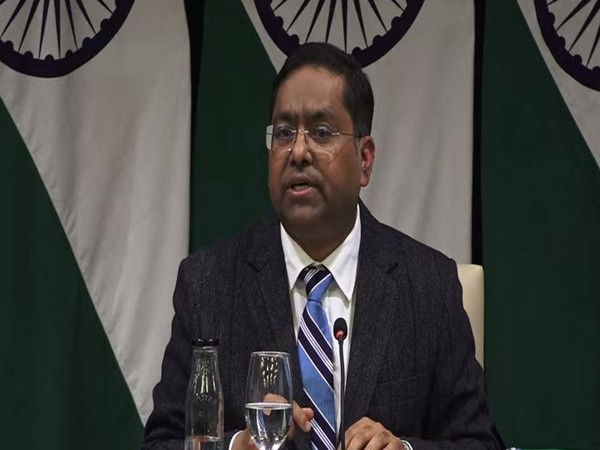The spokesperson for India’s External Affairs Ministry adopted a strategically calibrated posture today, indicating that India intends to avoid becoming a central issue in Pakistan’s impending general elections scheduled for February 8. This measured approach seems to convey to Nawaz Sharif, or whoever may succeed him, that India is not pursuing a confrontational path at this time.
In reply to a question on violent protests in Baluchistan, MEA spokesperson Randhir Jaiswal told media persons on Thursday, “violence in Pakistan, it’s an internal matter of Pakistan, so I have nothing to comment on this.” He was replying to a question posed to him about unrest in Balochinstan.
Pakistan’s caretaker Prime Minister Kakar had earlier insisted that those protesting in Islamabad were the enocouraged by India’s agency RAW. But Jaiswal refused to be dragged in this issue saying that it was no more than internal affair of Pakistan.
The upcoming National Assembly elections in Pakistan are pivotal, especially with Nawaz Sharif returning from his self-imposed exile. The court’s decision to permit him to contest the elections positions him as a strong contender. In India, Sharif is viewed as a seasoned leader in Pakistan with a preference for fostering business and trade relations.
The recent unrest in Baluchistan, as of late 2023 and early 2024, has been fuelled by several factors. A key catalyst for recent protests was the alleged extrajudicial killing of a Baloch youth by Counter-Terrorism Department personnel in November 2023. This incident led to a protest march from Turbat town to Islamabad, where demonstrators demanded the arrest of the officials involved and an independent judicial inquiry. The history of enforced disappearances and extrajudicial killings in Balochistan has been a longstanding issue, with thousands reported missing since 2000.
There have been significant civilian casualties in the conflict, with several attributed to terrorist/insurgent outfits, and many others believed to be the result of actions by security forces and their proxies. This has contributed to a cycle of violence and retaliation in the region.
State-sponsored actions like enforced disappearances and extrajudicial killings have led to a series of retaliatory attacks by Baloch insurgents against security forces and state establishments. This cycle of action and retaliation has exacerbated the chaos in the region.
The China-Pakistan Economic Corridor (CPEC) projects have been a major point of contention. Many in Balochistan believe that these projects are part of a strategy by China to exploit the region’s resources, contributing to resentment towards the Pakistani state and fuelling insurgent activities.
These factors, combined with historical grievances about political marginalization and economic neglect, have contributed to the recent unrest in Balochistan.
In Pakistan’s general elections, there are chances of Nawaz Sharif coming to power whom India thinks is more rational. He had even come to attend Prime Minister Narendra Modi’s first oath taking ceremony 2014 in Delhi.
The MEA spokesperson, Jaiswal, offered a restrained response to a query regarding India’s extradition request for Lashkar Chief Hafiz Saeed. He stated,“From our side, in this particular case that you are referring to, the individual is wanted here in connection with a money laundering case. So, we have provided the necessary documentation from our side for them to consider extradition in this particular case. However, the issue of what happens when there is no extradition treaty is a legal point, and I currently do not have information on it.” Notably, this response marks a departure from India’s usual stance, as it refrains from directly labeling Hafiz Saeed as a terrorist, a label that Pakistan often receives in such contexts.
